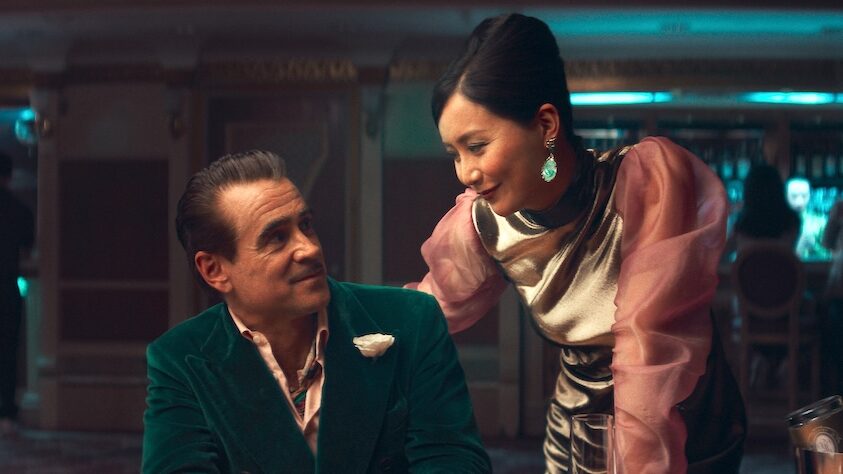
‘Ballad of a Small Player’ San Sebastian Review: A Gambler’s Opera (Netflix)
Set in Macau, this tale of a compulsive gambler trades emotional truth for operatic visuals, leaving Colin Farrell to carry a film that never quite comes alive.
Colin Farrell gives it his all. You can see the effort: he throws himself into Ballad of a Small Player with everything he’s got, sweating through the role from start to finish, sacrificing himself for the film. The problem is, there’s not much more than that on display here: Farrell bleeding out on screen as a compulsive gambler tilting at windmills, while the German director of Conclave turns Macau into a glossy, hollow shop window where everything seems to happen and nothing really does. For a movie about the nerve-shredding pastime of high-stakes casino gambling, it’s strangely inert and lifeless.
Farrell plays a fake aristocrat who calls himself Lord Doyle and lives in Macau, Asia’s gambling capital. When we first meet him, he’s on the verge of being kicked out of his hotel for owing hundreds of thousands of dollars. He scrapes together a roll of cash from the bottom of a jar, takes it to the baccarat tables, and promptly loses again. He has no idea how he’ll come up with the money to pay off his debts. Soon we learn those aren’t his only debts: a woman (Tilda Swinton) is chasing him down to collect on other ones, financial and moral alike.
The setup, adapted from Lawrence Osborne’s novel, is simple: gambler has a few days to pay off what he owes, and the only way he sees out is to keep gambling, hoping luck will finally break his way. As you might imagine, that doesn’t happen easily—or at all. Ballad of a Small Player follows this sweaty, half-suicidal, heavy-drinking, gut-punched antihero as he staggers through Macau in the guise of a dandy who knows he’s on borrowed time.

Along the way he crosses paths with Dao Ming, a beautiful local casino worker; faces off with rivals; flees his pursuers; and has bizarre encounters with Swinton, who looks like she wandered in from a Terry Gilliam film. That’s the movie’s core problem: its over-stylization, the sense that it was made by someone who sees the story as tragic, dramatic, and cool but never connects to it on a human level. The film is pitched at operatic intensity, cranked visually two or three notches above normal and directed by someone more interested in romantic grand gestures than in anything resembling emotional truth.
It’s a gambler’s movie in a distinctly European key—worlds apart from what an American filmmaker might have done with the same material. Think Paolo Sorrentino more than Martin Scorsese. There’s pomp, heightened drama, some undeniable aesthetic beauty—but precious little emotional honesty. Farrell tries to fill that void with sheer sweat and desperation, but all that does is highlight the gaping emptiness around him. Like his character at the start, this is a movie that feels almost soulless.
There are hints of the mystical and the fantastical that don’t add much, touches of Orientalism that might have flown in a mid-20th-century setting but feel dated today, and an overcooked melodrama that comes off like bad imitation of Wong Kar-wai. Worst of all, even though parts of the film were likely shot in the fascinating streets of Macau, you never shake the sense that you’re watching a studio set. That choice doesn’t have to be a problem in itself—it’s a valid aesthetic strategy, and the story could justify it—but here it just doesn’t work. You see the watermark, the stylistic exercise, the grand gesture, but very rarely anything that resembles truth.



